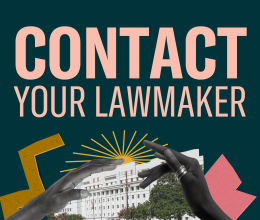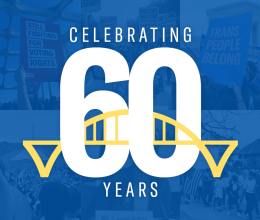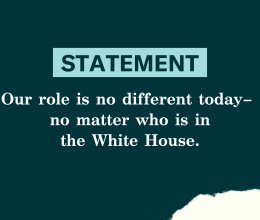
On Friday, July 17, 2020, Alabama’s Secretary of State announced that expanded absentee voting guidelines would continue through the November 3, 2020, elections. The announcement is a massive win in the fight for accessible voting amid the COVID-19 pandemic. The Secretary’s decision comes after the NAACP Legal Defense and Educational Fund, Inc. (LDF), Southern Poverty Law Center (SPLC), Alabama Disabilities Advocacy Program (ADAP), and the American Civil Liberties Union (ACLU) filed a July 6, 2020, amended complaint in People First of Alabama v. Merrill, which alleged that the lack of no-excuse absentee voting endangered the lives of high-risk voters in violation of the U.S. Constitution and federal civil rights laws.
This victory also comes despite the Supreme Court’s July 2 order, which temporarily blocked a federal court’s preliminary injunction ruling in favor of plaintiffs. The preliminary injunction order allowed hundreds of high-risk voters to safely cast their absentee ballots without the need to comply with the state’s dangerous, unnecessary witness and photo ID requirements in the July 14 election. Election officials in Jefferson, Lee, and Mobile counties have agreed to count the ballots submitted without photo ID and witnesses between June 15 and July 2 pursuant to the preliminary injunction.
“A huge weight has been lifted off of the shoulders of Alabama voters,” said Deuel Ross, Senior Counsel at LDF. “Thousands of Black voters and voters with disabilities — who are at higher risk of contracting and dying from COVID-19 — will now be able to vote safely by mail in Alabama’s upcoming elections in August and November. We hope that this announcement is just a first step toward eliminating other needless restrictions and permitting fair, accessible voting for everyone in Alabama.”
“No one should be forced to choose between their health and their vote. Our legal action prompted state officials to recognize the gravity of limiting Alabamians’ ability to vote by mail in the midst of a deadly pandemic,” said Alora Thomas-Lundborg, Senior Staff Attorney with the ACLU’s Voting Rights Project.
“As COVID-19 infections rise, Secretary Merrill’s emergency order is a huge victory for Alabama voters who do not wish to risk their health at the polls this year,” said Caren Short, Senior Staff Attorney for the SPLC. “Still in place, however, are a curbside voting ban and absentee ballot requirements that demand voters violate social distancing with zero benefit to the integrity of elections. We will continue toward trial to ensure that no eligible Alabama voter has to choose between protecting their health and health of their families and exercising their fundamental right to vote.”
“With the continued rise of COVID-19 cases in Alabama, we are relieved that the vast majority of voters will have the opportunity to vote by absentee ballot,” said Bill Van der Pol, Senior Trial Counsel at ADAP. “However, we remain concerned for those with disabilities who will have significantly more difficulty meeting the witness and photo requirements that the state continues to require. We look forward to addressing these issues in trial.
In May, LDF, SPLC, and ADAP filed a federal lawsuit against Alabama Governor Kay Ivey, Secretary of State John Merrill, and others over the state’s lack of safe and accessible voting processes amid the COVID-19 pandemic. The lawsuit was filed on behalf of People First of Alabama, Greater Birmingham Ministries, the Alabama State Conference of the NAACP, and four individual voters with medical conditions that make them especially vulnerable to death or serious illness from COVID-19. The lawsuit requests that the court instruct state officials to make absentee and in-person voting more accessible to protect the health and safety of Alabama voters. The American Civil Liberties Union (ACLU) joined the lawsuit in early July. Trial in the case is scheduled for September 7, 2020.
LDF, SPLC, ADAP, and ACLU urge Secretary Merrill to widely publicize the extension so voters are well-informed. Read Alabama’s announcement extending expanded absentee voting guidelines through the November 2020 elections here.


